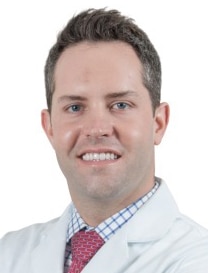
Center for Plastic Surgery
Center For Plastic Surgery
3299 Woodburn Road
Suite #490
Annandale, VA 22003
844-338-5667
Center For Plastic Surgery
5550 Friendship boulevard
Suite #130
Chevy Chase, MD 20815
844-338-5667

More Beauty Skin Care & Gorgeous Smiles Articles
Breast Reconstruction Options Beyond Implants
Breast cancer remains one of the most common cancers affecting women today. With many different options available for treating breast cancer, plastic surgeons must tailor breast reconstruction to align with the patient's goals for restoration.
Breast implants, either saline or silicone, provide a safe and proven option for many women looking to achieve a reconstruction following surgery; however, they may not be the right decision for all patients. Many women desire to use their own tissue or are simply not candidates for implants based on breast size, body frame, or failed previous implant-based breast reconstruction. Beyond implants, there are “autologous options” that rely upon one's own tissue. These include breast reduction, local tissue rearrangement, and free flap reconstruction in which tissue is transferred from a distant site to the breast for reconstruction.
The lower abdomen remains the most common site to obtain excess tissue to transfer as a free flap for breast reconstruction. Many patients have sufficient lower abdominal tissue to reconstruct both of their breasts.
For these reconstructions the abdominal tissue below the belly button and across the waistline is carefully removed from the abdomen. At this point it is transferred to the chest where it is connected to a new blood supply and meticulously shaped into a natural appearing breast. Though common, the abdomen is not the only donor site option. Other commonly used sites include the inner thighs, outer thighs, back and buttocks.
There are a number of benefits of a free flap breast reconstruction over an implant-based reconstruction. When only one breast needs to be reconstructed, a flap may provide a more symmetric balance to the unaltered breast. A flap reconstruction may also allow for a more natural appearance and feel of the breast compared to an implant. Furthermore, using your own tissue does not require additional operations for implant exchange with time. More specifically, there is no risk of implant related complications such as rupture, contracture, and malposition which often necessitate additional surgeries to correct these issues.
Autologous breast reconstruction continues to interest patients and surgeons alike for its many benefits. At the same time, breast implants continue to prove excellent options for many women seeking breast reconstruction. With a number of excellent breast reconstruction options on the table it is of upmost importance to tailor given operations for a specific patient. Autologous breast reconstruction remains an ideal operation for many women and one that should be discussed in order to fully understand all options in breast reconstruction.
Other Articles You May Find of Interest...
- Decoding the Light: How to Choose Between IPL, Fractional, and Radiofrequency Lasers
- Newport Beach Plastic Surgeon: Comprehensive Guide to Procedures, Benefits and Choosing the Right Specialist
- Is Larin Fe Right for You? Exploring Its Benefits and Considerations
- Effective Ways to Treat and Heal Sun Poisoning
- Why Beauty Now Focuses on Refinement, Not Overhaul
- Email & SMS Automation in MedSpa Marketing Strategy
- Achieve a Youthful Profile with the Nefertiti Neck Lift?














